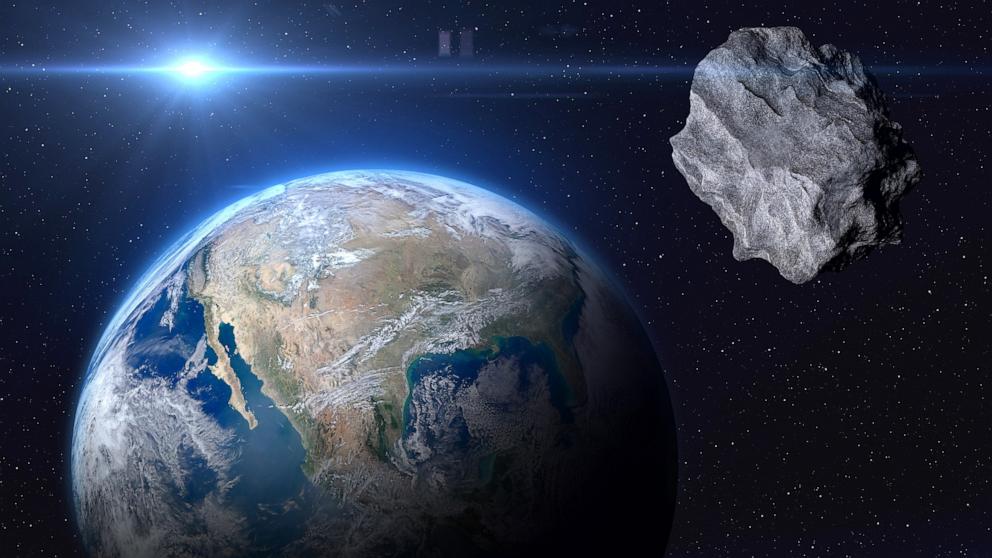


The Earth is getting a second moon for a limited time beginning the end of September.
An asteroid will come close enough to Earth to temporarily enter its orbit at the end of the month, a phenomenon dubbed as "mini-moon," according to astronomers.
Starting from Sept. 29, the asteroid, which was discovered by NASA on Aug. 7 from the Arjuna asteroid belt, will be orbiting the Earth for about two months until Nov. 25.
Researchers at the Asteroid Terrestrial-impact Last Alert System – a NASA-funded program – detected the asteroid using an instrument in Sutherland, South Africa and named it as 2024 PT5.
September's full Supermoon will be a partial lunar eclipse: What to knowThe asteroid is tiny compared to the size of the Earth's moon, measuring about 10 meters in length.
Speaking to ABC News, Astrophysics Professor Adam Frank from the University of Rochester explained the so-called mini-moon phenomenon.
"What we're having here is an asteroid, which is basically a flying mountain in space that usually orbits close to the Earth, or orbits in the same distance from the Sun as the Earth, and it's getting captured by the Earth's gravity. And they'll be part of the Earth Moon system," he said. "It'll orbit the Earth for maybe about two months, and then they'll get flung back out. So we get a little, teeny, tiny, little moon for about two months."
Frank told ABC News that unfortunately we won't be able to see the mini-moon with the naked eye because it is pretty small.
"You're gonna need a telescope," he explained. "Even then it may be pretty difficult, given its distance. So it's more the idea of it than actually we're getting an extra moon."
According to Frank, luckily, at this point, there is nothing to worry about the steroid coming into the Earth's orbit.
"Because if something this size were to hit the Earth, you know, it would be an apocalypse of a biblical kind," he said. "So really here, what we've got is something that's about the moon's orbit or so it's about that kind of distance. So in no way is it going to get close enough to threaten us in any way."
This phenomenon, however, will allow astronomers to learn more about asteroids and the skies.
"Astronomers are spending a lot of time trying to catalog these classes of asteroids to make sure that we understand where all of them are, because if any were to get close enough to the earth, we thought there was a possibility of hitting us, we'd have to figure out how to divert it or do something to it to keep it from striking the earth," he added.
In the study published this week, researchers said that the previous mini-moon events were short-lived and occurred in 1981 and in 2022.